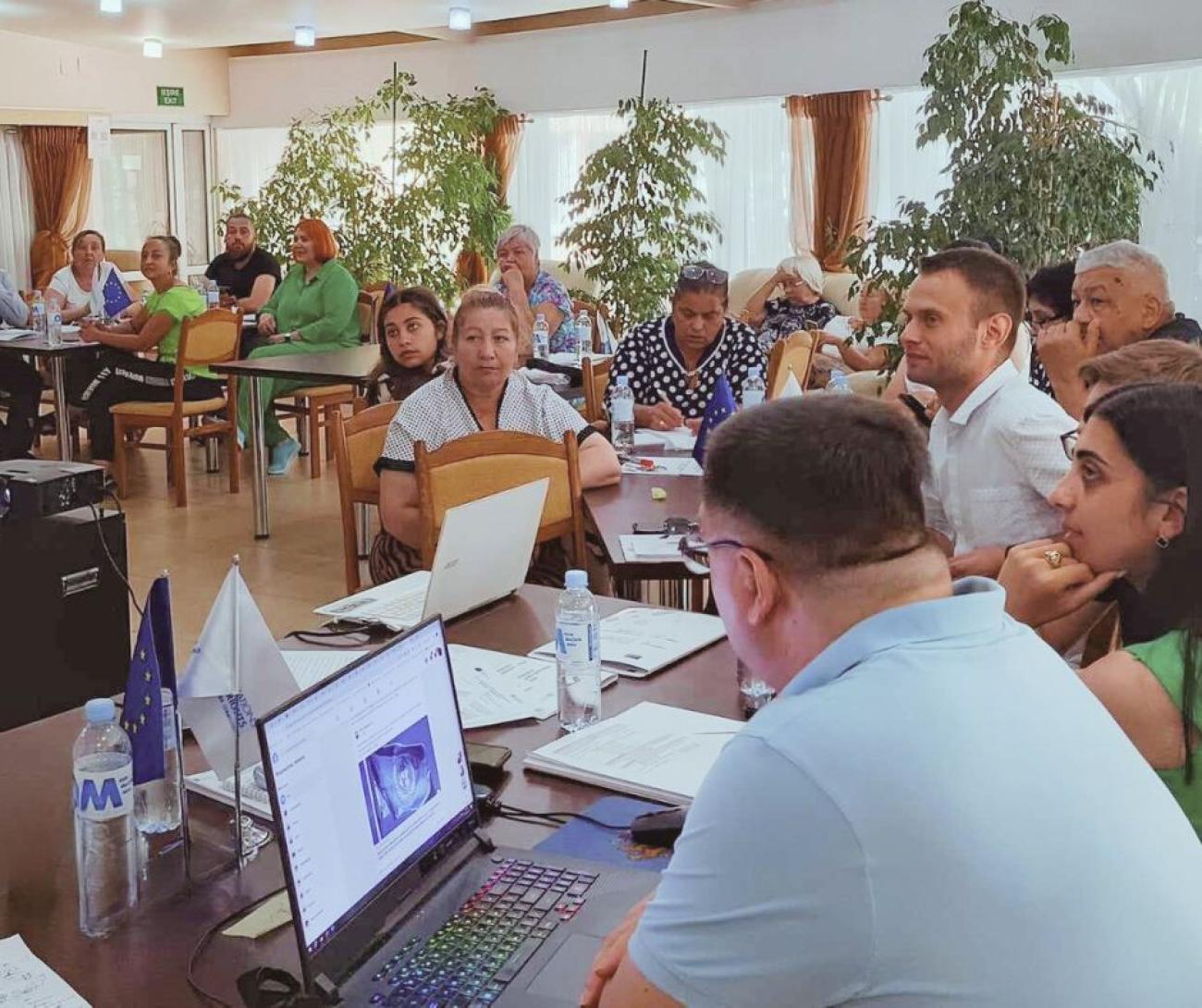EU-backed UN Human Rights initiative empowers Moldovan civil society to strengthen advocacy for minority rights

Addressing key challenges faced by minorities in Moldova by increasing the participation of minorities in public life.
A comprehensive training program, launched by UN Human Rights Moldova, is empowering civil society organizations (CSOs) and Roma community mediators from both banks of Nistru/Dniester River to effectively advocate for minority rights. The first in a series of intensive trainings held in early July in Vadul-lui-Vodă, brought together nearly 30 participants from diverse backgrounds and organizations, fostering a collaborative environment for learning and growth.
The training focused on equipping participants with a deeper understanding of human rights principles, international instruments, and mechanisms for the protection of ethnic, linguistic and religious minority rights. Participants engaged in discussions on equality, non-discrimination, and the unique challenges faced by minorities on both banks of Nistru/Dniester River.
"Our task is to provide in-depth knowledge so that participants have a clearer understanding of what human rights mechanisms are and how civil society can use these mechanisms to effectively promote and protect human rights of minorities" stated Iuliia Votslava, Human Rights Officer at UN Human Rights. She emphasized the important role of civil society in advocating for the implementation of recommendations issued by international bodies, stating, "While implementing recommendations is the State's responsibility, civil society plays an important role as partner who can advocate for their full implementation."
The training has already had a tangible impact on participants' work. Nicolai Cheleș, co-founder of the Youth Platform for Interethnic Solidarity, shared how the knowledge gained empowered him to raise minority issues at the Global Minority Rights Summer School, increasing the visibility of Moldovan minorities on the international stage. "By participating at the training, I enhanced my knowledge and understanding of the issues faced by minorities in Moldova," Cheleș explained. "The opportunity to engage more intensively with other human rights defenders and experts who guided us was invaluable. I was then able to immediately share this knowledge and advocate for minorities from Moldova at a global forum in the context of the Global Minority Rights Summer School. This experience solidified my belief that by working together, we can truly make a difference in the lives of minorities in Moldova."
Ludmila Babuci, a member of the National Community Mediators Association in Moldova and Community Mediator in Edineț city, in the northern part of the country, stated the profound impact of this seminar, which was a catalyst for positive changes in her work of advancing human rights for the Roma community. “We deepened our knowledge on discrimination and its different dimensions, and learned how to distinguish between individual conflicts, cases of discrimination and other human rights violations," in addition to valuable knowledge gained during the training on human rights mechanisms.
"We did not previously have a clear understanding of how to effectively tackle discrimination against the Roma community - what actions to take and which authorities to appeal to. During the training we discussed a recent case of discrimination against Roma in a local medical centre. In this and in other relevant cases of discrimination, we examined the legal provisions, the actions of the authorities and their impact on minorities".
Building on the knowledge and experiences shared by other participants, human rights defenders from the left bank of Nistru/Dniester River also found the training valuable. For instance, Elena Stepanova, a journalist and founder of the cultural and human rights CSO "Journalists for the Environment " in Dubasari, said the training was an inspiring experience. "I refreshed my previous knowledge and gained new, deeper insights into the promotion and protection of minority rights," Stepanova said. "The close work with colleagues helped me to decide on future topics for journalistic materials on minorities, in particular the Roma community." Stepanova's work often focuses on human rights issues related to vulnerable groups, including persons with disabilities.
Looking ahead, UN Human Rights is already preparing for the second training session, scheduled for September. This session will delve deeper into advocacy tools and strategies, equipping participants with the skills to conduct effective campaigns and initiatives that address identified human rights gaps.
In addition to the training sessions supported by OHCHR, participants will receive support to implement their advocacy initiatives, which will help them to put into practice the knowledge gained during the training sessions.
This comprehensive approach, capacity-building, mentoring and joint action, is part of the OHCHR project "Strengthening the Rights of Minorities in Moldova", funded by the European Union. The project addresses key challenges faced by minorities in Moldova, focusing on improving the implementation of international recommendations, increasing the participation of minorities in public life, and improving the inclusion of data on minorities in official statistics.
***
The European Union is an economic and political union of 27 European countries. It is founded on the values of respect for human dignity, freedom, democracy, equality, the rule of law and respect for human rights, including the rights of persons belonging to minorities. It acts globally to promote sustainable development of societies, environment and economies, so that everyone can benefit.
For more information about the EU activities in Republic of Moldova, please visit https://eeas.europa.eu/delegations/kazakhstan_enDelegation of the European Union to the Republic of Moldova | EEAS (europa.eu) (https://www.eeas.europa.eu/delegations/moldova_en?s=223)
UN Human Rights in Moldova supports the Government, civil society, National Human Rights Institutions and the UN Country Team among others, in strengthening the respect, protection and fulfilment of human rights in the Republic of Moldova. For more information about OHCHR Moldova please visit Republic of Moldova | OHCHR (https://www.ohchr.org/en/countries/moldova)



